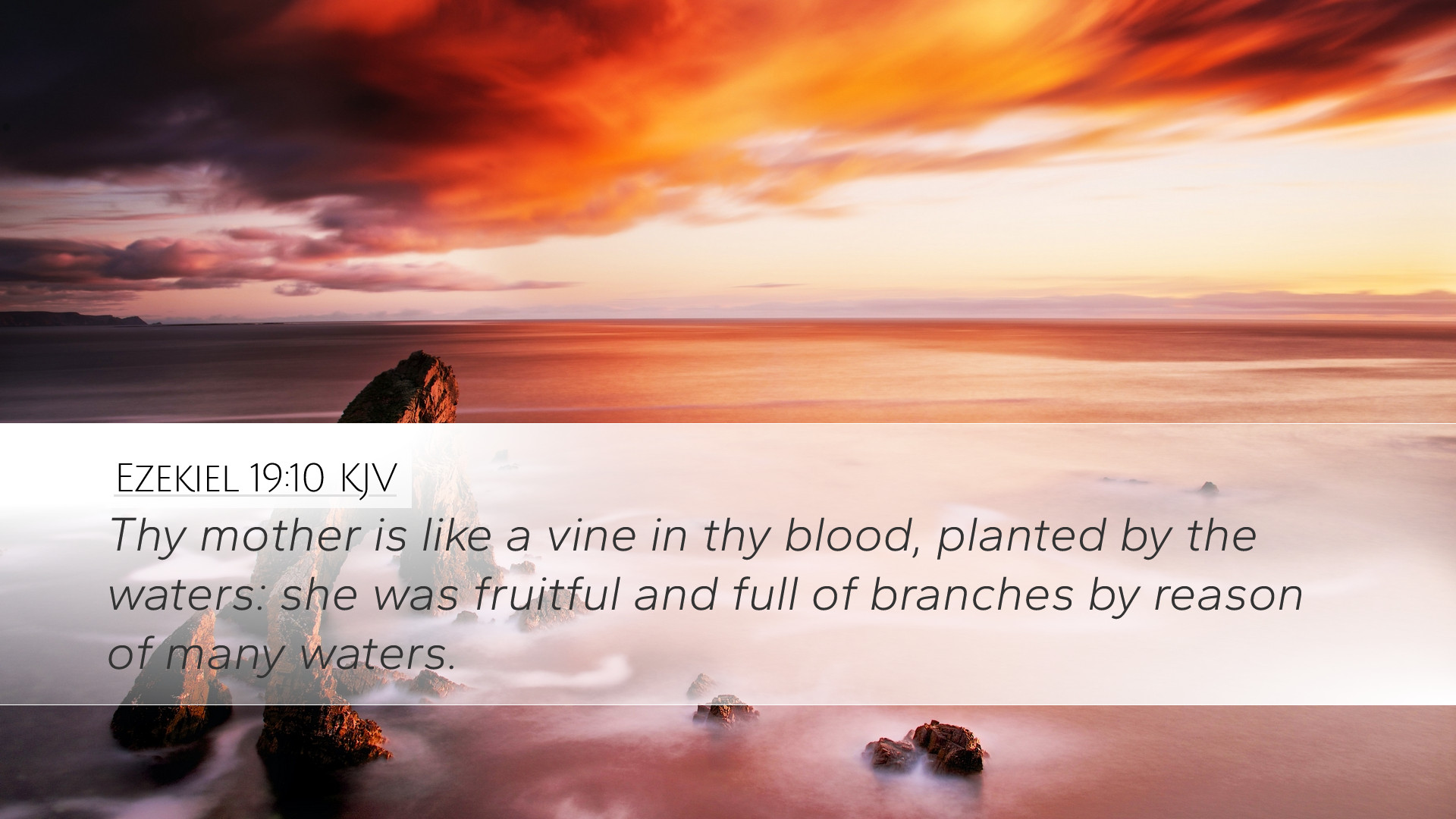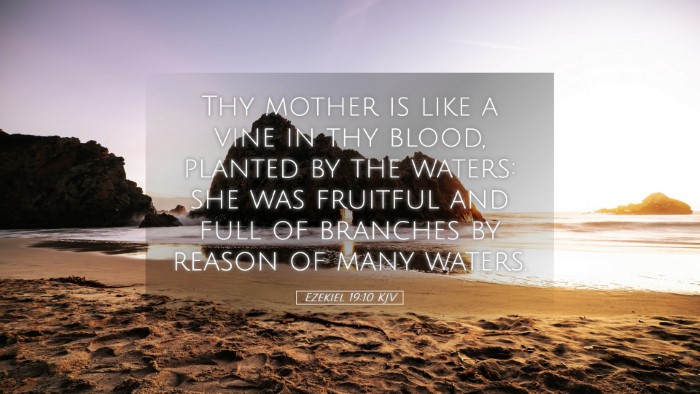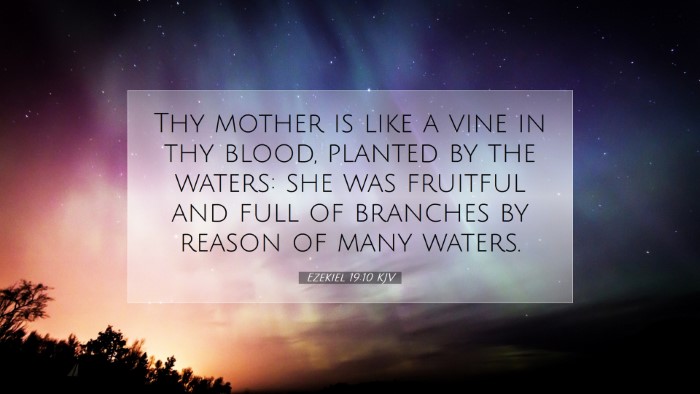Ezekiel 19:10 - Commentary and Insights
Verse Context: Ezekiel 19:10 states, "Thy mother is like a vine in thy blood, planted by the waters: she was fruitful and full of branches by reason of many waters." This verse uses vivid imagery to describe the state of Judah under the metaphor of a vine, illustrating both its potential for growth and its eventual decline.
Historical Background
Ezekiel prophesied during the Babylonian exile, a time of great distress for the nation of Israel. This chapter serves to lament the downfall of Judah's leaders and the destruction of the kingdom, while simultaneously reminding the people of their past glory as God's chosen nation.
Commentary from Key Scholars
Matthew Henry
Matthew Henry emphasizes the metaphor of the vine as representative of Israel's national identity and spiritual vitality. He notes that like a vine, Israel was planted by God and nurtured in a favorable environment, rich in resources ("by the waters"). This divine planting provided the necessary conditions for growth and fertility, with the potential to produce abundant fruit, symbolizing prosperity and spiritual blessings.
Henry also reflects on the significance of the "blood" reference, indicating the idea that the vine is rooted deeply in the lineage of God's people. The bond between the vine and the waters, he argues, suggests a strong connection to God’s providence, as the nourishing waters represent God's care and spiritual sustenance.
Albert Barnes
Albert Barnes offers a detailed interpretation of the vine image, highlighting its implications for the people of Judah. He notes that the nurturing of the vine signifies the care and cultivation God provided to Israel. Barnes points out that the vine can thrive and flourish when in a conducive environment, but also warns of the dangers of neglect, suggesting that spiritual decline often follows abandonment of God’s ways.
Moreover, Barnes comments on the imagery of the vine producing branches, which can be interpreted as the leaders and members of the community, emphasizing that each part of the vine must remain connected to the root and source of sustenance to survive. Therefore, when Israel strayed from their covenant with God, it ultimately deteriorated their collective integrity.
Adam Clarke
Adam Clarke provides a theological reflection on the passage, particularly on the connotations of the vine. He elaborates on the duality of the vine's fruitfulness and eventual decline. Clarke describes the vine as both a representation of God's blessing and a warning against the consequences of sin. The imagery illustrates the disastrous effects of disobedience and the resulting punishment from God.
Clarke asserts that while the mother vine (symbolizing Judah) was once prosperous, her future decline is inevitable if unfaithfulness persists. He notes that the reference to "many waters" signifies not only physical sustenance but also the idea of divine abundance which is available to those who abide closely with God.
Theological Implications
The verse encapsulates important theological themes relevant for contemporary readers:
- Divine Nurturance: The image of a vine planted by waters symbolizes God’s active role in nurturing His creation.
- Identity and Legacy: The vine represents the legacy and identity of God’s people, highlighting the connection to their heritage.
- Consequences of Disobedience: Just as a vine can wither if neglected, so may God’s people face decline and judgment due to sin.
- Hope for Restoration: While the current state may be lamentable, the underlying message holds a promise for redemption and restoration through repentance.
Conclusion
Ezekiel 19:10 serves as a poignant reminder of God's care for His people and the importance of remaining faithful to Him. As interpreted through the lenses of Matthew Henry, Albert Barnes, and Adam Clarke, the passage emphasizes both God's provision and the necessity of vigilance against spiritual neglect. For pastors, students, theologians, and scholars, this verse can inspire deeper reflection on the nature of God's nurturing and the communal responsibility of maintaining faithfulness in the face of challenges.


